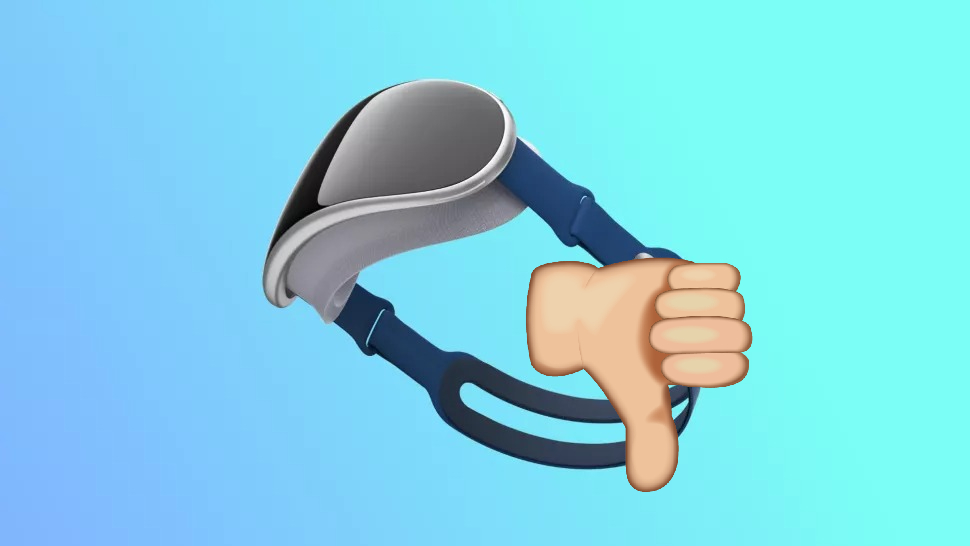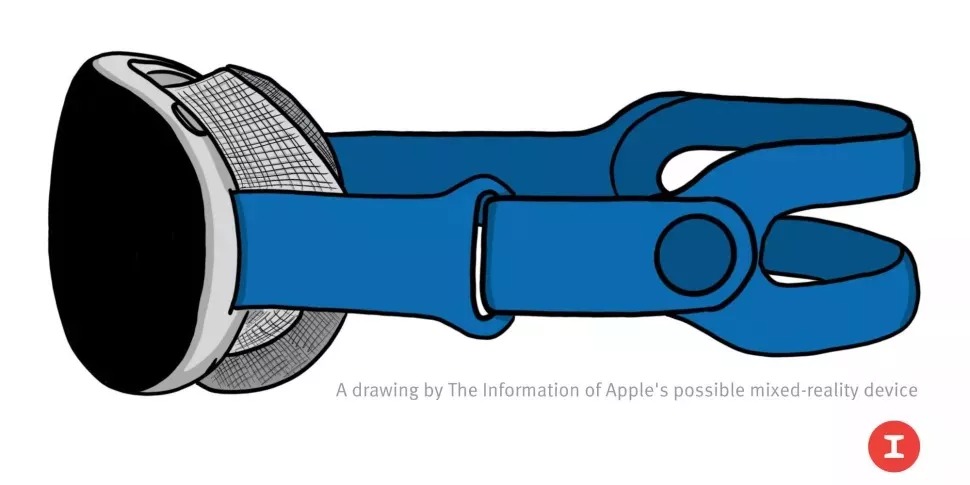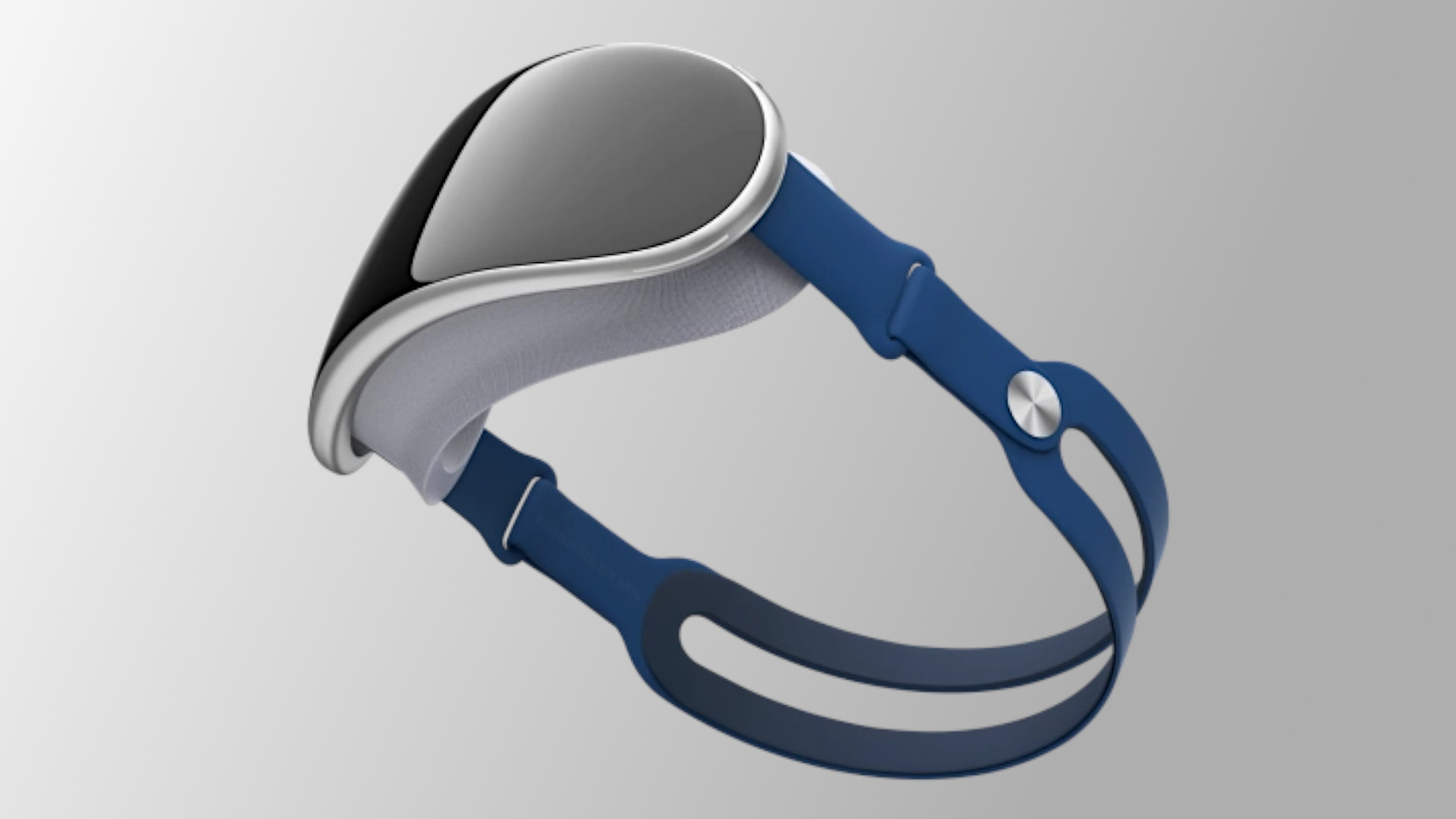According to a report from Bloomberg, the upcoming Apple AR/VR headset faced shaky support from top executives. Apple CEO Tim Cook, for example, reportedly had a hands-off approach to its product development, which contributed to company-wide poor confidence in the long-rumored device.
Apple’s AR/VR headset has been in development since 2015, according to reports, with fans chomping at the bit at every leak and rumor. However, behind the scenes at Apple, some felt that Cook’s lack of direct involvement slowed the project’s progress.
Cook wasn’t the only Apple executive who looked down on the Apple AR/VR headset. Sources say that Johny Srouji, Apple’s senior vice president of hardware technologies, derogatorily called the head-mounted display a “science project.”
Check out three reasons why the AR/VR headset failed to win the affection of the top dogs at Apple.
1.The device is too far removed from Apple’s initial vision
What was Apple’s initial vision for the headset? An all-day wearable device that can replace one’s iPhone. Cook, in particular, was adamant about rolling out a lightweight, glasses-like design. However, due to technological constraints, Cook’s vision is impossible — for now.
If you take a look at our Apple AR/VR headset rumor hub, you’ll see that there was a lot of contentious debate on its design during the early stages. One camp wanted to design an ultra-powerful VR headset, but that meant off-loading some components into a companion hub, like a mini-computer of sorts, to rectify heat issues. Another camp, however, was willing to sacrifice some of that power to have a standalone, lightweight headset sans the need for a pesky companion hub.

This is just a modicum of the friction the Apple AR/VR headset faced. After years of dissension and a revolving door of leaders heading the project, rumor has it that the head-mounted display has morphed into a ski goggle-esque form factor with a battery pack. Apple reportedly wanted more of an unobtrusive, untethered design, but again, this isn’t feasible. Although it’s 2023, we’re still not at a place where we can pack ultra-powerful VR components into a head-mounted display without burning consumers’ faces off.
2. It lacks cool features Apple was expecting
It’s always a lot easier to sell a product that actually has cool features. For example, according to the Bloomberg report, Apple was banking on the AR/VR headset having a feature that lets owners use the head-mounted display as an external Mac monitor.

Apple was also hoping that the AR/VR headset could have a noteworthy multi-person video call feature. As it turns out, the Apple AR/VR headset will likely have these aforementioned capabilities, but they won’t be as advanced as the Cupertino-based tech giant was expecting them to be, adding to executives’ disappointment.
Engineers on the AR/VR design team reportedly expressed that the headset isn’t ready, but top dogs like Cook are pushing for its release (despite its rumored crudeness). As such, the AR/VR headset is expected to be announced at WWDC 2023 in June. Yes, this June.
“I suspect there’s a lot of internal pressure for the next big thing,” Michael Gartenberg, a former Apple marketing executive, told Bloomberg.
3. The iPhone trumped the AR/VR headset in importance
While Steve Jobs was known for taking more of a hands-on, micro-managed approach, Cook is perceived as having a more distant persona. However, Cook’s lack of involvement is more conspicuous as Apple employees prepare to announce the long-awaited AR/VR headset. After all, this is Apple’s first foray into AR/VR hardware. Shouldn’t Cook want to be more of an active participant in its development?

Cook’s detached attitude seemed to influence other key figures at Apple, too, including Craig Federighi (senior VP of software engineering). According to the Bloomberg report, he’s been keeping his distance from the headset and appeared to be “wary” of it.
As we hinted at the outset, Srouji took an aloof approach as well. However, unlike Cook and Federighi, he was more vocal about why, according to sources close to the matter. He allegedly said that he would prefer that Apple redirected its attention on building high-performing chips for the iPhone, a surefire revenue driver, instead of focusing on the AR/VR headset. In fact, he referred to the so-called “science project” as a distraction.
Outlook
Unfortunately, according to pundits, we’re still four years away from creating the dream AR/VR headset Apple intended to build in the beginning: a standalone, lightweight, ultra-powerful AR/VR headset.
However, as mentioned, there seems to be a lot of internal pressure to break out “the next big thing,” so the top dogs are putting their foot down and refusing to allow any delays. As such, it appears that the Apple AR/VR headset, rumored to be priced at $3,000, won’t meet Apple’s high standards.
We’re not sure whether this goggles-like device will be well received by Apple fans, but if you’re interested in snagging an Apple AR/VR headset, I’d suggest waiting for the second or third-generation version that should also be cheaper. There are just too many reports insinuating that the head-mounted display is far from ready. Where there’s smoke, there’s fire!
To keep abreast of all the new gossip regarding the Apple AR/VR headset, check out our rumor hub.
Back to Ultrabook Laptops
Source link
 notebook.co.id informasi dan review notebook laptop tablet dan pc
notebook.co.id informasi dan review notebook laptop tablet dan pc